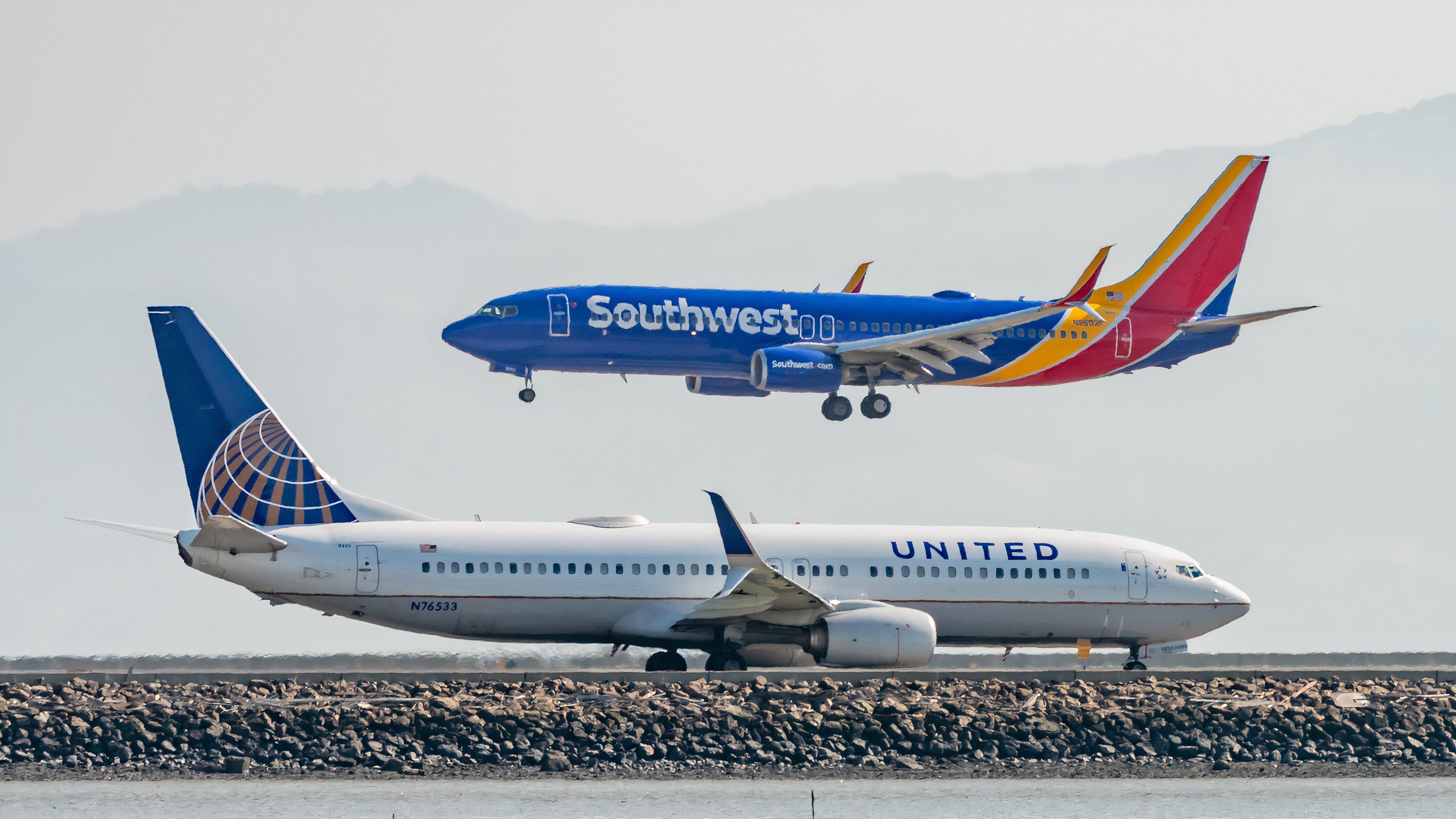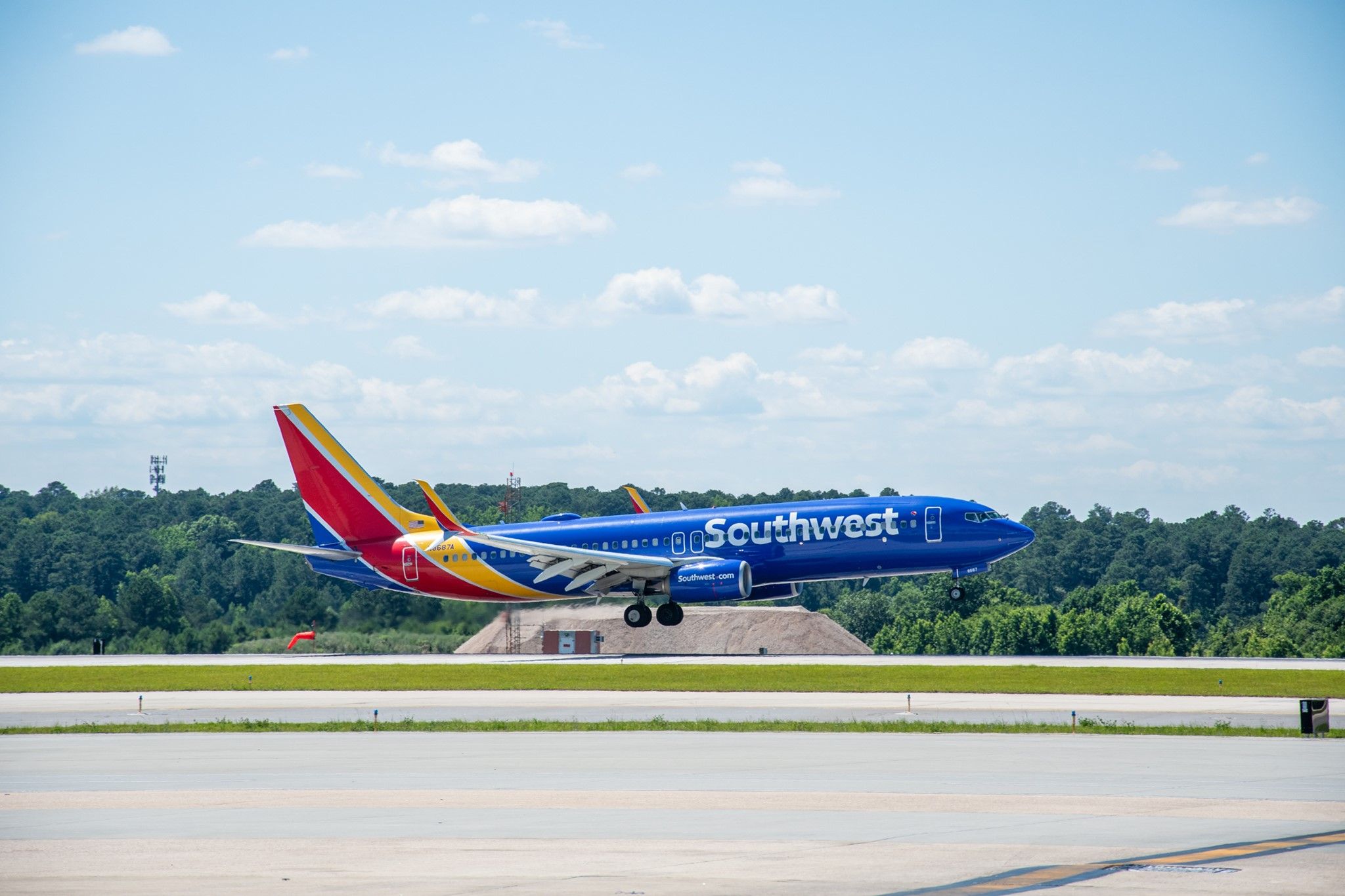 Southwest Airlines
Southwest Airlines
on Thursday unveiled new details on how it will move forward with introducing assigned seats
. Since making the historic decision in July, the low-cost carrier has maintained that it is based on “consumer appeal.”
However, despite its recent disclosure of information, the airline has yet to share how assigned seating will affect its current and inclusive Customer of Size policy, which has accommodated plus-size passengers for more than 30 years. Now, the National Association to Advance Fat Acceptance (NAAFA) is speaking out.
“Seat assignments are a higher priority”
Southwest highlighted that “airline passengers now have a clear preference for seat assignments.” The carrier explained that 80% of its passengers and 86% of other travelers who choose to fly on different carriers “want assigned seats.” As such, the airline confirmed that it expects to begin selling assigned seats during the second half of next year. The first flights
will operate with the new model by the first half of 2026.
The Dallas-based carrier also cited its current network and how it “flies farther than ever” as another reason to introduce assigned seats.
“Southwest flies farther than ever, and seat assignments are a higher priority on long-haul flights.”
Staying silent
Last month, Simple Flying reported how the new model sparked worry in plus-sized passengers
. Southwest would not respond to requests for comment, but it was reported that the carrier would likely have more to share in September. Upset with the move, NAAFA representatives said assigned seating would “complicate the process,” given its Customer of Size policy allows plus-sized passengers to purchase two seats and be reimbursed for the extra seat after their flight.
Photo: J Hopwood | Shutterstock
On Thursday, the association called out Southwest for “causing deep concern” in its community since the carrier has not explicitly mentioned how seat assignments will impact the Customer of Size policy.
“They say this policy is in response to customer preferences, but they have neglected to address the concerns of a loyal customer base, the customer of size,” the association said. “For years, fat people have utilized and celebrated Southwest for having the most equitable seating policy of any major airline.”
The NAAFA says it has attempted to get Southwest’s attention through social media posts, petitions, and media outreach. The association hopes the airline will “eventually address” its concerns.
In a statement, Tigress Osborn, the Executive Director of the NAAFA, said Southwest should “make flying even friendlier for fat people” as it rolls out its approach to assigned seating.
“Southwest made a public commitment to ensuring that bags continue to fly free. We are calling on them to make a public commitment to ensuring that accessibility for Customers of Size and disabled passengers will not be undermined by upcoming changes to their planes and procedures. Southwest currently has the best policy in the country for plus size passengers. As they work toward a better customer service experience for everyone, that has to include us. Now is the time to make flying even friendlier for fat people, not to regress to the difficulties larger people have with Southwest’s competitors.”
“Stronger Southwest” vs. “Save Southwest”
The carrier has not only been under pressure from NAAFA, but also from Elliott Investment Management, its second-largest shareholder. The management firm has called on Southwest’s CEO to resign, among other changes that it believes will help it boost its profits and become “A Stronger Southwest.”
Photo: Raleigh–Durham International Airport
Elliot’s influence is not favored everyone, however. A believed-to-be-flight attendant started a petition earlier this month to stop the management firm and “Save Southwest.” The petition initially received as many as 400 signatures in one day, but now, over 2,700 people have signed it with a goal of reaching 5,000 signatures.


